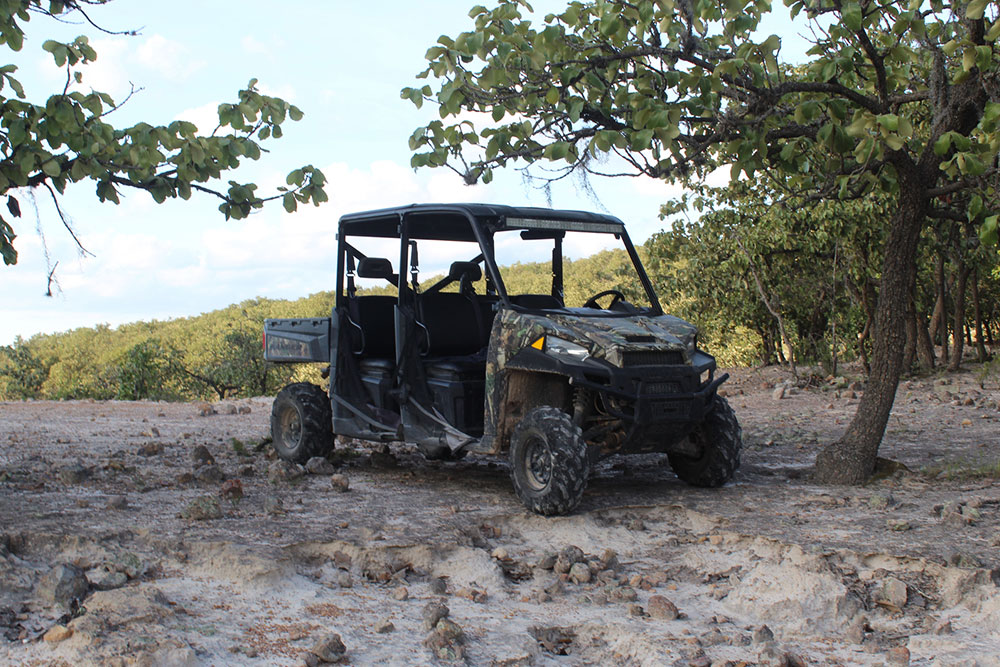Ways to Find the Trade-in Value of a Used Polaris ATV
Selling a used ATV (All-Terrain Vehicle) like Polaris is as complicated as buying a new one. There are several factors to consider while selling a Polaris, including fixtures, touch-ups, advertising, and negotiations. Also, with a Polaris in question, a vehicle known for its rugged versatility and advanced engineering, a little research is necessary. This can also help in finding a fair price point that attracts the right customers and also leaves some room for negotiation.
Ways to find the trade-in value
1. Collect all the basic information about the vehicle
The first step in determining the trade-in value of a Polaris ATV is to collect relevant information, including the year of manufacture, mileage, the condition of the vehicle (including wear and tear or mechanical problems, if any), and maintenance records.

2. Check out online trade-in value estimators
It’s natural to feel a certain level of bias while selling a Polaris, and as an owner, it may make it difficult to assess its value objectively. But it’s not advisable to assume its value by relying solely on an average depreciation percentage and subtracting it from the purchase price. When it comes to the used vehicle market, there are many parameters that determine vehicle prices, including its age, condition, mileage, and market demand. For the ATV and UTV market, in particular, the data is limited, and dealers have their own reports that aren’t available to the public.
But the best bet for most sellers is to use value estimators available online to determine the current value of the ATV. To avoid overestimating or underestimating one’s Polaris, these tools can be extremely helpful since they constantly assess the market and have updated pricing information.
- Kelley Blue Book (KBB) : KBB collects data from different manufacturers, dealers, auctions, private transactions, and rental fleets daily. They then use this information to provide accurate and updated estimates. One simply has to enter the Polaris details to get an estimated trade-in value.
- NADA guides : The National Automobile Dealers Association, or NADA, offers comprehensive pricing guides for ATVs, UTVs, snowmobiles, and motorcycles. NADA offers current market values based on factors such as the vehicle’s age, condition, mileage, market and economic trends, and auction prices. For this, NADA works with the insurance sector and professionals in the field. It also takes regional or local factors into consideration that may vary the price of the vehicle.
3. Check out Polaris’s official website
The brand’s official website also has an option to find the value of all their models. One can simply navigate to the trade-in section on the Polaris website and choose the type of vehicle one owns. The brand has listed all their ATVs and motorcycles, including Ranger and Sportsman. After selecting the appropriate option, one will be redirected to the estimation page. Here, one needs to enter general details about one’s vehicle and location to get the current value of one’s Polaris ATV. But to get an estimate, one needs to be 18 years or older.
It is important to remember that the estimates are dynamic in nature and may change almost daily, so do not expect the vehicle’s value to stay the same for long. Relying too much on these estimates could mean missing out on getting a better deal. It’s best to use the freely available market knowledge, tools, and one’s negotiation skills to get the best value for one’s Polaris.
Ways to increase the trade-in value
1. Compile the maintenance records
Organizing all paperwork and receipts from maintenance is a must. These records can include oil or filter changes, part replacements, upgrades, and other repairs. They serve as evidence that the vehicle is in excellent condition and well taken care of. One can easily produce these documents when needed, especially during negotiations.
2. Clean the vehicle
Before clicking pictures of the Polaris to upload or hand them around for sale, ensure that it’s spick and span inside out. People tend to take a look at vehicles that are clean, well-maintained, and attractive. Remove any dirt or debris from the tire treads or undercarriage, vacuum the carpets, and clean the body panels and windows to enhance their overall aesthetics.
3. Have the title on hand
When selling a used Polaris ATV, it is important to keep the title accessible to produce whenever required. It is one of the most important documents that gets transferred during the sale.
4. Click HD pictures
The first thing a buyer will notice when looking for a used ATV is pictures of the vehicle. Buyers also appreciate honesty and wish to get maximum information about the car upfront. So, one should click high-resolution and professional pictures of one’s vehicle from all angles and come clean about any scratches to make the listing attractive as well as comprehensive.

